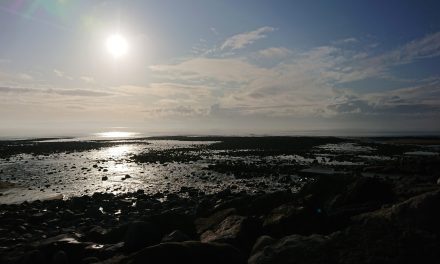Beachcombing is a fun and enjoyable activity that many people like to take part in. Whether you’re beachcombing or simply thinking of taking a souvenir from the beach, there are certain laws and rules that must be followed.
There are different laws in place to protect certain treasures that are located on beaches around the UK, and it is important to be aware of these rules before you take anything home with you. Some items are protected by law, whilst others aren’t.
Please note that the following rules apply only for the UK. The laws may vary in other places.
What to expect from our article
- 1 The Coastal Protection Act – 1949
- 1.1 Who Owns the Beach?
- 1.2 Taking Sand and Pebbles from the Beach
- 1.3 Can I take Sea-glass from the Beach?
- 1.4 Taking Shells and Driftwood from Beaches
- 1.5 Taking Fossils from the Beach
- 1.6 Beachcombing Abroad
- 1.7 Beachcombing Etiquette
- 1.8 Only Leave Footprints Behind
- 1.9 Keeping Distance
- 1.10 Not All Glass is Treasure
- 1.11 Be Kind and Respectful
- 1.12 Respecting Wildlife
- 1.13 Common Courtesy
The Coastal Protection Act – 1949
The coastal protection act was created in 1949 to amend the law that related to the protection of coasts in Great Britain. This measure aims to protect the coast from erosion.
Coastal erosion is when the sea begins to wear away at the land. There are five main processes of coastal erosion, which include:
- Corrasion – This is when destructive waves pick up beach materials, such as pebbles, and launch them at the base of the cliffs. Over time, this can deteriorate the cliff and form what is called a ‘wave-cut notch’.
- Abrasion – This occurs as breaking waves that contain sand and larger fragments, slowly wear away the base of a cliff or headland. This is commonly referred to as the sandpaper effect and is particularly common during stormy conditions.
- Hydraulic action – This is when the waves hit the base of a cliff and air is compressed into cracks. When the wave retreats, this air is quickly released and can cause cliff material to break away.
- Attrition – This is when waves cause rocks and pebbles to bump into each other, which causes them to break down.
- Corrosion – This is when specific types of cliffs erode due to weak acids in the sea.
There are different factors that can change the rate of erosion. These can include:
- Strong winds
- Waves with a long fetch
- Coasts with no beach to lessen the effects
Who Owns the Beach?
One of the first things to consider if you are planning to take any materials from the beach, is who owns it. Beaches can either be public or private. There may be different rules on a private beach that are worth taking into consideration. Always check beforehand to avoid getting into trouble.
Taking Sand and Pebbles from the Beach
The Coast Protection Act states that in the UK, it is unlawful to take any natural materials like sand and pebbles from the beach, no matter the amount. You can be at fault for taking just one pebble from the beach. This law is in place to protect the natural environment. This can be enforced by local councils and result in a fine of up to £1000.
Many beaches have opted to put up signs explaining these rules and asking people not to remove materials from the beach. However, not all beaches will have these signs, so it is important to have all of the correct knowledge and information. If caught, you may also be forced to return all of these materials.
Taking sand from the beach can cause a long-term decrease or even extinction of wildlife populations. Some animals depend on sand beaches for hatching their eggs. Even though there is lots of sand on beaches, there isn’t as much as there should be. This natural resource is slowly depleting.
Can I take Sea-glass from the Beach?
Sea glass is physically weathered glass that can be found on beaches. Sea-glass begins as shards of broken glass that are constantly tumbled around in the sea. Eventually, the glass loses it’s natural glossy appearance and becomes frosted with smooth and round edges. Many people collect sea-glass as a hobby and some even use it for art or jewellery making.
Naturally produced sea-glass comes from pieces of broken bottles, or even shipwrecks, and is eventually deposited on beaches. It can be found all over the world in a variety of different colours, sizes, and shapes. You won’t be able to find sea-glass on every beach, but there are certain beaches where this glass is more commonly found.
Due to the fact that sea-glass isn’t involved with any natural processes that occur at the coast, there is no law against taking it. You are free to take as much sea-glass from the beach as you wish.
Taking Shells and Driftwood from Beaches
There isn’t currently any law that protects driftwood and seashells. This means that you can take these materials home with you from the beach and use them for a variety of different purposes. Many people like to use these materials for crafting and make a living from doing so.
However, there are some things that you should be aware of when removing driftwood or seashells from the beach. You could be disturbing the natural habitats of different animals.
Seashells are an important part of coastal ecosystems:
- They provide material for birds nests
- They provide a home or attachment surface for algae
- Fish use them to hide from predators
- Hermit crabs use them as temporary shelters
- Removing shells has the potential to affect the natural erosion process
You shouldn’t take any shells from the beach that are inhabited by living organisms. It is important to make ethical decisions in order to protect natural wildlife and surroundings.
Taking Fossils from the Beach
The UK has many beaches that are homes to unique and interesting fossils. For those who don’t know, fossils are the remains and traces of natural life that have been preserved over time by natural processes. Fossils can include skeletons, imprints, tracks, and trails and are collected by many.
If you discover a fossil that is of serious size or rarity, you are encouraged to report it to the scientific community. This provides them with the opportunity to study them and potentially find out new information.
Beachcombing Abroad
The laws vary in different countries abroad, so if you are looking to take home any souvenirs from the beach, make sure to check that it is legal to do so first.
Beachcombing Etiquette
Now that we have covered the laws concerning beachcombing in the UK, it might be a good idea to follow some of our beachcombing etiquette guidelines to help enhance your experience. Whilst these rules aren’t law, they are important to consider when visiting the beach.
Only Leave Footprints Behind
You should always leave the beach just as you found it when you got there. Put your rubbish in the bins provided, or if there aren’t any bins, take your rubbish home with you. Litter is a common issue on beaches and we all need to work together to keep our beaches clean.
If you wanted to take this one step further, you could also help by picking up any litter that you do come across on the beach.
Keeping Distance
It may not be the best idea to dive in front of a fellow beachcomber to claim the seaglass at their feet. Try to keep some distance between yourself and other beachcombers to avoid conflict.
Not All Glass is Treasure
If you happen to come across any sharp fragments of glass or bottles, try not to leave them in the sand as they can cause injury to others walking along the beach.
Be Kind and Respectful
Be considerate of other people on the beach and be friendly to those around you. You may find that someone approaches you to find out what it is that you’re collecting, or they may be after some friendly advice. It is common sense to not be rude. You never know, you could even make a lifelong beachcombing friend at the beach.
Respecting Wildlife
You should never take any living creatures from the beach with you.There are often endangered species living on beaches and it is important to not cause any further damage. If you do come across something that is already dead, like a starfish or crab, feel free to take it with you. Otherwise, you can take pictures before moving on, to remember the moment.
Common Courtesy
We can all sometimes get a little bit too consumed in the beachcombing experience but you should try and be aware of your surroundings and make sure to look where you’re going to avoid walking into somebody.
Whilst these aren’t necessarily ‘rules’, they are important to consider in order to better the beachcombing community and make it a friendly, welcoming, and enjoyable experience.

















Trackbacks/Pingbacks